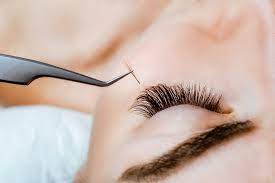
Rats, rats, rats, rats. That’s what a study just published in the Journal of Functional Foods used. Not humans. Not people. Rats.
Therefore, this study does not prove that coffee can prevent Holiday weight gain in humans, even in humans who happen to be rats in a different sense. Yet, headlines have emerged saying that coffee or caffeine could somehow prevent or offset Holiday weight gain based on this study. Unless these headlines were aimed specifically at the laboratory rat population, making the jump to humans is quite a leap.
In fact, the study didn’t even feed rats little cups of coffee and invite them to Holiday parties. Instead, a University of Illinois-based research team (Fatima J.Zapata, Miguel Rebollo-Hernanz, Jan E.Novakofski, Manabu T.Nakamura, ElviraGonzalez de Mejia) fed rats for four weeks a high-fat-high-sucrose diet and for some added synthetic caffeine, caffeine from coffee, caffeine from mate tea, mate tea, or decaffeinated mate tea extracts. Those rats who got the caffeine from mate had on average 16% less weight gain and 22% less body fat accumulation than those that had the decaffeinated mate tea extracts.

Surprised about the mate tea findings? (Photo: Getty Images)
GETTY
The study also included a cell culture portion in which the scientists exposed fat cells from mice (yes, mice, not humans) to either synthetic caffeine or the coffee or mate caffeine extracts. Caffeine exposure resulted in a 20% to 41% decrease in the amount of lipids that these fat cells accumulated. It also seemed to reduce the expression of two genes, the fatty acid synthase gene (Fasn) and the lipoprotein lipase gene (Lpl), that produce enzymes involved in the production and handling of low-density lipoprotein (LDL) cholesterol (that’s the bad cholesterol) and triglycerides.
Well, g’day mate tea, this all sounds good. It is useful scientific information that should pave the way for more studies. Sure, it is plausible that caffeine could help with weight loss. After all, it is a stimulant. It appears to affect different metabolic processes. For example, in a study that I covered previously for Forbes, caffeine seemed to stimulate brown fat cells to burn more fat in mouse stem cells, which by the way are not humans.

Many humans may be rats, but rats are different from humans. (Photo: Getty Images)
GETTY
However, remember, this is all in mice, mice baby and rats. There are big, big differences between rodents and humans, and it’s not just size. Rats do have differences in physiology and behaviors such as sleeping, physical activity, and reality-TV show watching. Moreover, things that work in labs, don’t necessarily work in the everyday world.
Plus, there is big difference between short-term weight loss and sustainable healthy weight loss. There are lots of things that you can do to lose weight over the short term if you are not worried about you health. For example, crack cocaine can help you lose weight. But there are some problems with such a plan. Be very skeptical about any diet plan that touts weight loss over several weeks or even months. Inquire about what happened over the long term and whether the weight loss was actually maintainable.
So, don’t start pounding the coffee or mate tea just yet in hopes of burning off that fruit cake or egg nog that you just consumed. Moderation, a balanced diet, avoiding highly processed foods, and exercise are still the keys to weight management. Don’t look for short cuts or magic potions. Yes, you can say, rats, life is not that easy.
[“source=forbes”]










